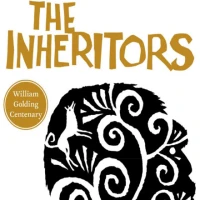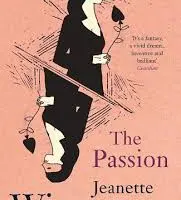After Leaving Mr Mackenzie by Jean Rhys
Jean Rhys is one of the great writers of the 20th Century. She wrote four novels which are in some senses the same novel, but she’s hardly the only author to keep returning to the same territory. Like Patrick Hamilton she doesn’t flinch from the indifferent cruelty of the comfortable to the marginal.
That’s a pretty much perfect cover image for this book. Here’s the opening two paragraphs to give a sense of the sharpness of her style:
After she had parted from Mr Mackenzie, Julia Martin went to live in a cheap hotel on the Quai des Grands Augustins. It looked a lowdown sort of place and the staircase smelt of the landlady’s cats, but the rooms were cleaner than you would have expected. There were three cats – white Angoras – and they seemed usually to be sleeping in the hotel bureau.
The landlady was a thin, fair woman with red eyelids. She had a low, whispering voice and a hesitating manner, so that you thought: ‘She can’t possibly be a French-woman.’ Not that you lost yourself in conjectures as to what she was because you didn’t care a damn anyway.
Julia Martin is a 30-something woman living in late 1920s Paris. She’s survived on her looks and her lovers, but as the first fades the second are harder to come by. She has neither job nor savings and no cushion of family money to fall back on. She’s barely holding on, coming home each night with a bottle of wine for company and waking up to reflect that striped wallpapers “made her head ache worse when she awoke after she had been drinking.”
Julia was recently dumped by Mr Mackenzie of the title (she didn’t leave him, the title is ironic). Since then she’s been living off a weekly stipend he’s sent her both to assuage his guilt and in return for her not bothering him further. Now he feels he’s paid enough, so he’s stopping the cheques. For him it’s tidying his affairs; for her it’s a desolation.
At least for now Julia’s still an attractive woman, though she’s worried about her weight and signs of fatigue are showing. Charm is a dwindling currency as she well knows. Every day, desperate as things are, she still does her make up.She fears not doing so would be the first step to becoming the woman who lives on the floor above; a feared future:
The woman had a humble, cringing manner.Of course, she had discovered that, having neither money nor virtue, she had better be humble if she knew what was good for her. But her eyes were malevolent – the horribly malevolent eyes of an old, forsaken woman. She was a shadow, kept alive by a flame of hatred for somebody who had long ago forgotten all about her.
With Paris too full of memories and too short on prospects, Julia is forced to return home to London to stay with her sister. Julia’s family are “members of the vast crowd that bears on its back the label, ‘No money’ from the cradle to the grave”. They’re respectable people. They don’t understand Julia’s need to escape a life they’ve all accepted, and they don’t sympathise now she’s forced to return.
Rhys excels at capturing small humiliations and the fantasies that sustain us. Julia approaches an old lover for money, consoling herself that he’s rich and that their affair though it ended years ago ended well and surely he’ll remember her kindly. To him she’s a curio from the past, like someone you lost touch with years before who pops up on Facebook asking to be friends even though you long since stopped having anything in common.
For most of the novel Rhys focuses on Julia’s thoughts and feelings, but in her encounters with others the viewpoint slips across so that we see their perspective. It’s impossible not to sympathise with Julia, but equally what does she expect? She’s moody and volatile, far from easy to live with; for the men she’s a passing affair that nobody, including her, ever expected to last.
Rhys doesn’t look away from the uncomfortable. It would be easy to make Julia a nicer person and the men heartless, but it’s not that simple. Julia rebelled against her class and expectations. She fled to men and Paris and a life her family would never approve of. Rebellion however is expensive, and this is a world and a time without a safety net. Julia’s problem isn’t her age or her weight or the very real constraints of her gender. Julia’s problem is money. If she had money the rest could be managed. As M. Folantin found in Huysmans’ With the Flow, when you’re broke your wallet determines your options.
The great sin here is hypocrisy. Julia is condemned even by those who once slept with her, yet who doesn’t want to find a little life before they die? Her real crimes are to lack the advantages of her lovers – their gender and their money – and to lack the acceptance of her family that all you’ll ever have is what the status quo allows you. Her men and her family both judge her, but like all hypocrites they don’t weigh themselves in the same balance.
The contents page tells you she returns to Paris but even if it hadn’t no reader would be surprised when she does. Julia left London for good reasons and she can’t fit back in to the world she quite purposefully left behind. Paris of course was a failure too, though of a different sort, and part of Rhys’ talent is to sail a fine course between hope and despair. Julia is demoralised, rejected and pushed aside but she never quite gives up.
She knew herself ready to struggle and twist and turn, to be unscrupulous and cunning as are all weak creatures fighting for their lives against the strong.
The specifics of Julia Martin’s world are gone. Women today have more options and more opportunities to realise themselves other than through men allowing them to. Even so, the book still rings true. A spot of prolonged unemployment; a divorce after years raising children; a bout of depression; many of us are only a stroke of bad luck away from everything falling apart. If you’re young you can probably bounce back. Even 85 years after this was published though if you’re older you’d still best have money or the world can be a very cold place indeed.
Other reviews
I’ve reviewed Rhys’ Quartet here, a Penguin Modern Classics pocket edition of four of her short stories here, and probably her best novel Good Morning, Midnight here. Otherwise, Dovegreyreader reviewed this one here, and there’s an excellent piece in the Guardian about it here (which lays out pretty much the whole plot, but honestly knowing it doesn’t make much difference).
Edit: Jacqui of JacquiWine’s Journal also wrote a particularly good review, here.













This is the only Rhys I’ve read so far, but your review makes me want to go back to her fairly soon. Your comments on the small humiliations and hypocrisies are spot-on – I think it comes out in the scenes with Julia’s Uncle Griffiths, too. Have you read Edith Wharton’s The House of Mirth yet? (I’ve a feeling it’s still in your TBR.) Certain aspects of Lily Bart’s situation remind me of Julia’s, especially towards the end.
Sorry I forgot to link your review Jacqui, which is very good indeed. I struggled with this one a bit for some reason. Definitely agree the scenes with Uncle Griffiths.
Not yet re Mirth, but it is as you say on the list…
I went through a Rhys period a few years ago after being directed towards Wide Sargossa Sea (which I don’t think is her best IMO). There’s something uniquely interesting about this period in Paris, isn’t there?
There absolutely is, which of course is the joke in Woody Allen’s Midnight in Paris which actually I rather liked though it’s a bit smug and definitely lightweight (on the Allen front that wasn’t a return to form, more an amuse bouche, though I thought Blue Jasmine was back up there).
Wide I’ve still not read. Oddly enough it never hugely appeals.
Oh, no worries, Max. It’s impossible to remember every review we’ve read. (I know I can’t!) Many thanks for adding a link to mine.
I forgot to comment on the line you selected for the title of your post – it’s perfect, that’s the book in a nutshell.
Excellent piece. It’s so long since I read Rhys but everything is conspiring to push me back to her.
I’m beginning to gather a few old Penguins (I don’t mean retired zoo animals) and hope to read more of Rhys’ work this year having only ever encountered the apparently atypical Wide Sargasso Sea. Your review is another excellent reminder / encouragement.
I’m a huge fan of Rhys and love this novel. Its one of my favorites. I’m so happy you posted about it – makes me want to reread it 🙂 Great post!
Thank you, thank you for talking about Jean Rhys. I’ve loved her for years and have been trying to raise awareness of her, as I think she is terribly underrated (except for Wide Sargasso Sea, which is almost uncharacteristic of her). I only have two of her books with me at present (I’m currently living abroad), of which this is one and her short story collection Sleep It Off Lady is another, and the rest are in my attic back home.
I really like what you say about the book still ringing true. Even nowadays, even with women’s options being quite different, it is not that hard to imagine some people slipping into this precarious existence. As for that rather tragic scene towards the end where a young man tries to pick her up, until he sees her under the lamp and says ‘Ah, non, alors’ and walks away… it brings tears to my eyes.
Pingback: Reflections on a reading year | Pechorin's Journal
I was quite pleased to find it Jacqui, particularly since I totally forgot to put a decent title on my Vertigo post.
Kaggsy, push, push!
Grant, a shame, it would be nice to imagine you surrounded by books and retired zoo-animals. I’d maybe start with another, but not Good Morning, Midnight as that’s her best.
Nadia, it just made my end of 2015 list, so I guess that makes it one of my favourites too. Thanks for the comment.
Marina, I agree, I think she’s hugely underrated. What’s the short story collection like? I don’t know it.
Good thought on that scene. It is heartbreaking.
Great review and a nice reminder to read another Rhys than Wide Sargasso Sea.
I liked Midnight in Paris for the atmosphere and the music. It’s a light Woody Allen. I agree, Blue Jasmin is better. Have you seen Irrational Man?
I hadn’t even heard somehow of Irrational Man. Is it any good?
Pingback: something about the darkness of the streets has a meaning | Pechorin's Journal